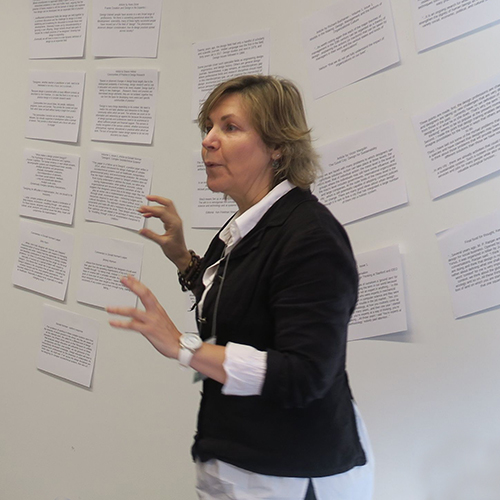Systemic design agendas in education and design research
DOI:
https://doi.org/10.7577/formakademisk.2608Abstract
Since 2014, an international collaborative of design leaders has been exploring ways in which methods can be augmented, transitioning from the heritage legacy focus on products and services towards a broad range of complex sociotechnical systems and contemporary societal problems issues. At the RSD4 Symposium (2015), DesignX co-founder Don Norman presented a keynote talk on the frontiers of design practice and necessity for advanced design education for highly complex sociotechnical problems. He identified the qualities of these systems as relevant to DesignX problems, and called for systemics, transdisciplinarity and the need for high-quality observations (or evidence) in these design problems. Initial directions found were proposed in the first DesignX workshop in October 2015, which were published in the design journal Shè Jì. In October 2016, another DesignX workshop was held at Tongji University in Shanghai, overlapping with the timing of the RSD5 Symposium where this workshop was convened. The timing of these events presented an opportunity to explore design education and research concepts, ideas and directions of thought that emerged from the multiple discussions and reflections through this experimental workshop. The aim of this paper is to report on the workshop as a continuing project in the DesignX discourse, to share reflections and recommendations from this working group.

Downloads
Published
How to Cite
Issue
Section
License
Authors who publish with this journal agree to the following terms:
- Authors retain copyright and grant the journal right of first publication with the work simultaneously licensed under a Creative Commons Attribution 4.0 License that allows others to share the work with an acknowledgement of the work's authorship and initial publication in this journal.
- Authors are able to enter into separate, additional contractual arrangements for the non-exclusive distribution of the journal's published version of the work (e.g., post it to an institutional repository or publish it in a book), with an acknowledgement of its initial publication in this journal.
- Authors are permitted and encouraged to post their work online (e.g., in institutional repositories or on their website) prior to and during the submission process, as it can lead to productive exchanges, as well as earlier and greater citation of published work (See The Effect of Open Access).
- The author(s) must manage their economic reproduction rights to any third party.
- The journal makes no financial or other compensation for submissions, unless a separate agreement regarding this matter has been made with the author(s).
- The journal is obliged to archive the manuscript (including metadata) in its originally published digital form for at least a suitable amount of time in which the manuscript can be accessed via a long-term archive for digital material, such as in the Norwegian universities’ institutional archives within the framework of the NORA partnership.
The material will be published OpenAccess with a Creative Commons 4.0 License which allows anyone to read, share and adapt the content, even commercially under the licence terms:
This work needs to be appropriately attributed/credited, a link must be provided to the CC-BY 4.0 licence, and changes made need to be indicated in a reasonable manner, but not in any way that suggests that the licensor endorses you or your use.



